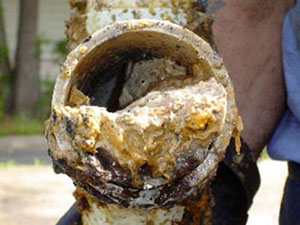When fats, oils, and grease are poured or flushed down your sinks, drains, or toilets they enter the sewer system where they cool, harden and stick to the inner walls of sewer pipes.
FOG includes animal and vegetable fats, as well as oils used to cook and prepare food. ..
- Butter or margarine
- Shortening
- Lard
- Salad dressings
- Cooking oils (includes deep frying oils)
- Olive oil
- Sauces and gravies
- Meat fats
- Milk and cream
- Marinades
- Sandwich spreads
Ensure fats, oils and grease are disposed of properly to avoid harmful impacts to human health and the environment. Repairing sewage infrastructure because of fats, oils and grease damage can also lead to increased water rates.
What You Can do to Prevent FOG From Going Down the Drain
Fats, oils and grease are organic waste and should be placed in your green bin.
- Before washing pots, pans and dirty dishes, wait for fats, oils and grease to harden
- Wipe with a paper towel or scrape it into the green bin
If fats, oils and grease are in liquid form, leave it in the pan to cool or pour the liquid into a container such as a tin can or bowl to cool then empty into green bin.
DID YOU KNOW?
Waste fats and grease can also be used to make suet to feed birds.
Liquid cooking oils like vegetable oil, canola oil, sunflower oil and olive oil that won’t solidify can be dropped off at one of York Region’s waste depots for recycling into biodiesel.
Please cool it, scarp it and put into a lidded coffee can or other disposable container. Once hardened, put it in the green bin
